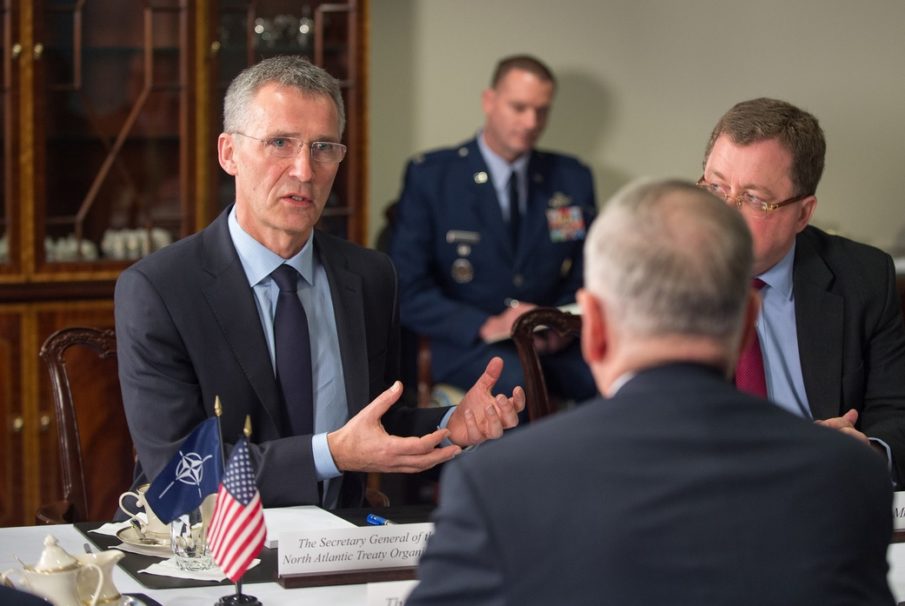NATO Secretary General Jens Stoltenberg announced on Thursday that NATO will increase its troop presence in Afghanistan in order to support the ongoing Resolute Support Mission.
In February, General John W. Nicholson Jr, commander of the American-led international military force in Afghanistan, testified before Congress that the coalition has reached a stalemate with Islamist Extremist forces in the country, specifically the Taliban. He explained that he had enough American Special Operations troops for their role in the mission, but was lacking military advisors needed at lower levels of Afghan command. Nicholson specified that the troop influx he required did not need to be American, and could feasibly come from any of the 39 nations participating in operations throughout the country.
In the months since, President Trump has delegated the authority to determine troop commitment in Afghanistan to Defense Secretary James Mattis, though no decision has publicly been made about an American troop surge in the country thus far. Other NATO nations have been reluctant to promise any troop increases either, often for domestic political reasons.
“The Taliban had a good year last year, and they’re trying to have a good one this year,” Mattis said at the time. “Right now, I believe the enemy is surging.”
Last month, Marine Corps Gen. Joe Dunford, the chairman of the Joint Chiefs of Staff, called on other NATO defense chiefs to increase their role in combatting terrorism the world over, including in Afghanistan.
The Defense Ministerial held in Brussels, Germany this week allowed for Defense Officials from NATO’s 29 member states to discuss the challenges faced by their alliance, among them were classic NATO concerns about Russia, as well as the future for Afghanistan.
“Over the years, we have achieved hard-won gains in Afghanistan and many of our women and men have paid the ultimate price,” Stoltenberg said to the media at the conclusion of the Ministerial. “We will always honor their service and sacrifice.”
“Today, Afghan security forces are fully responsible for security across the country,” the secretary general said. “Every day they demonstrate bravery and resilience, leading the fight to defeat terrorists and protect their people.”
Stoltenberg told the press that NATO’s military presence in Afghanistan is already sizable, with some 13,000 troops deployed to the nation from NATO member states, but he was quick to clarify that 13,000 is too low. According to him, the alliance will send “a few thousand” more troops to aid in the Resolute Support Mission.
“At a force generation conference earlier this month, 15 nations pledged additional contributions to Resolute Support,” he said. “We also got some more announcements and pledges during the meeting today.”
Stoltenberg did not specify which nations had pledged troop increases, nor did he give a clear number of how many troops would be joining the NATO forces already in Afghanistan, but did temper his statements with a clear call to the Afghan government to ensure the NATO investment could be short-lived.
Already have an account? Sign In
Two ways to continue to read this article.
Subscribe
$1.99
every 4 weeks
- Unlimited access to all articles
- Support independent journalism
- Ad-free reading experience
Subscribe Now
Recurring Monthly. Cancel Anytime.










COMMENTS